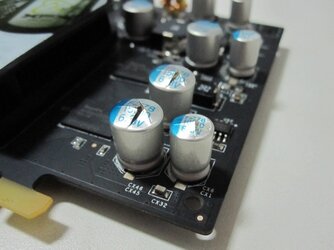zzzzzzzzzz2
New Member
- Joined
- Aug 14, 2016
There is plenty on information on the Internet regarding how to visibly identify bad electrolytic capacitors (picture: http://tenettech.com/content/images/thumbs/0009021_electrolytic_capacitor.jpeg ). I have not found such availability of information regarding visibly identifiable solid state capacitors.
Are failed solid state capacitors such as those pictured http://www.pcstats.com/articleimages/200702/ABITAW9DMax_cap.jpg , able to be identified visibly?
Are failed solid state capacitors such as those pictured http://www.pcstats.com/articleimages/200702/ABITAW9DMax_cap.jpg , able to be identified visibly?

